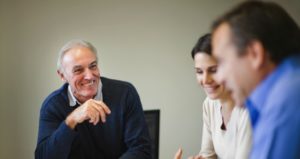The past 10 years have witnessed some massive growing pains in education. Nearly all aspects at all levels have been touched by efforts to reform in an attempt to create meaningful learning opportunities for today’s students. New tools, skills, approaches, and media have redefined the way we create those experiences, and educators who don’t learn and engage in them will see themselves become increasingly irrelevant. In short, faculty development now more than ever is necessary to an institution’s viability.






